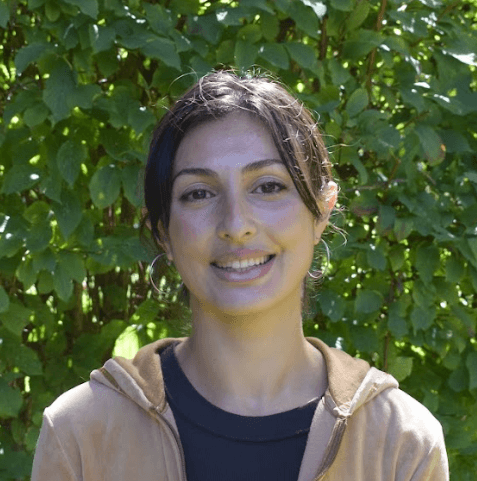
Leia Ben Naceur, Research Community Officer, Money and Mental Health Policy Institute
Introducing: Leia Ben Naceur
24 August 2023
- Leia has recently joined Money and Mental Health as our Research Community Officer
- Leia was drawn to Money and Mental Health as our person-centred approach to policy mirrors her own belief in the importance of community engagement
- Leia is looking forward to engaging with our Research Community and hopes to help us ensure our policy work is representative of people’s diverse lived experiences of financial difficulty and mental health problems.
From media headlines about strikes and the rental crisis to our own recent research into the urgent need for joined-up money and mental health support, it’s clear that people are deeply impacted by the ever-rising cost of living in the UK. A person’s financial situation is so much more than the money in their bank account. Money has so much social meaning that it can be difficult to not have it play into our own sense of self worth.
Money is a key source of stress for so many of us – half of people in problem debt also have a mental health problem. NHS waiting lists are getting longer, and 43% of UK adults with a mental illness said that the wait makes their mental health worse.
Why Money and Mental Health?
Whilst the relationship between our quality of life and access to healthcare impacts our mental state, it’s never been more apparent to me than it is today. In this era of profound economic change and financial uncertainty, Money and Mental Health’s work is more essential than it has ever been.
Money and Mental Health takes the experiences of people seriously by approaching policy work in a bottom-up fashion – through our Research Community of 5,000 people with lived experience of mental health problems – that, I think, is often lost in the pursuit of policy changes.
By grounding itself around the actual experiences of people at the intersection of finances and mental health, Money and Mental Health is positioned to make a great positive difference to people’s lives in this current economic moment.
My background
Advocating for support and care for people navigating mental health problems has been central to my work over the past decade. During this time I’ve worked with people in vulnerable situations, and particularly with young people from minoritised ethnic backgrounds, advocating for their voices to be heard and for their demands for mental health care and adequate education be met no matter their resources.
In recognising how pervasive issues around finances, access to resources and mental health care are, I began working in the research sector as I believed this is how structural changes can best be made. Whilst I enjoyed this work, I have never seen lived experience play such a central role in research and policy work as it does at Money and Mental Health.
As someone who was raised in an immigrant family with, at times, significant financial anxieties, I have seen how this can affect a person’s mental health, and their relationships within their family and community. Recognising the many ways that the relationship between money and mental health can be impacted through identity has shaped how I work and how I feel positive change can be made – Money and Mental Health very much champions this ethos.
My role at Money and Mental Health
As Money and Mental Health’s new Research Community Officer, I’ll be helping to grow, support and listen to community members. I’m looking forward to continuing this person-centred work and striving to make the Research Community as accessible as possible. I’m looking forward to fostering a community that is as representative and as diverse in cultures, ethnicities and lived experiences as the UK itself.
I am so excited to help the Research Community grow and in doing so, see a greater breadth of lived experience included in our policy work. I am keen to be an advocate for each and every member of the Research Community so that their voices continue to be a central part of Money and Mental Health.
Equally, I’m eager to help Research Community members recognise that their insight paves the way for positive changes that, they feel, makes a difference to their lives each day. I also hope for the Research Community itself to be a space for members to recognise that they are not alone in their experiences, no matter how isolating mental ill health can sometimes feel.
Ultimately, I hope that the work of Money and Mental Health, and the input of the Research Community that it’s built on, fosters a society in which fewer and fewer people are experiencing both mental health problems and financial difficulty.
